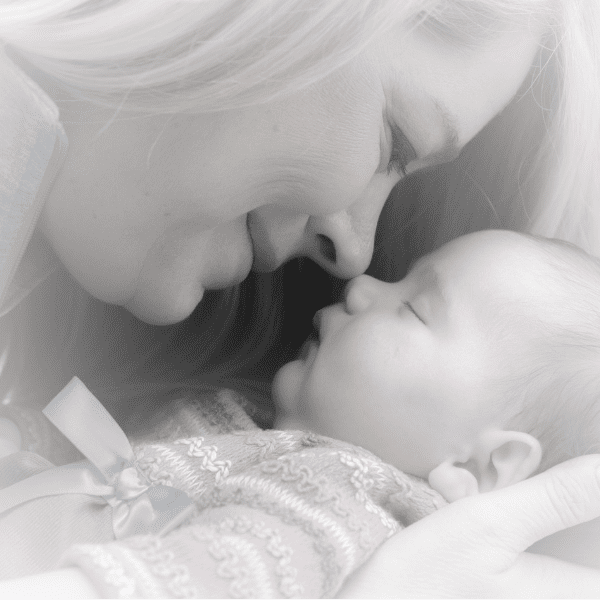
4th Trimester Information
In our society, we make a big fuss over pregnancy. We do lots of research, ask our doctors before even thinking of trying a new food or activity, and write detailed birth plans for our special day.
But strangely enough, few of us ever take the time to study and prepare for the postpartum recovery period!
The three months after childbirth, affectionately dubbed “the fourth trimester”, are a vulnerable time for a new parent, often filled with hormonal swings, feeding and sleeping difficulties, insecurities, and physical discomfort. Many new parents are blindsided by these changes and difficulties, and struggle through postpartum depression and anxiety.
However, you don’t have to be shocked by some of the realities of postpartum recovery. Let’s talk about some of the situations you may face, so you’ll be equipped to meet them head-on.
Postpartum Bleeding
Your placenta, which is about the size of a salad plate, is firmly embedded in the wall of your uterus. Once your baby is born, the placenta is no longer needed, so it peels away, leaving behind a salad-plate sized bleeding area! This is why you have lochia, or vaginal bleeding, after delivery whether you had a vaginal birth or a Cesarean birth.
This bleeding can last anywhere from four to six weeks – or even longer, depending on your activity levels. It’s not at all uncommon for women to think they have made a full recovery from birth after a week or two, and start doing all their usual activities again, only to experience a sudden gush of bright red bleeding. Rest and recovery time is essential to healing that large area inside of you.
There is always a slight risk of postpartum hemorrhage (excess blood loss) in those early days, so don’t hesitate to go to the doctor if you are soaking a large pad in less than an hour, or passing clots larger than golf balls.
Hormonal Shifts
Once your baby is born, you have some seriously fluctuating hormones going on. Your pregnancy hormones must drop, in order for your lactation hormones to rise. It’s no surprise that at least 80% of new moms experience the “baby blues”, which is characterized by crying, mood swings, fatigue, anxieties, insecurities, and insomia, to name a few, in the first couple weeks postpartum.
Your hormonal shifts can also lead to changes in libido, vaginal dryness, and postpartum depression.
Many new parents have found that placenta encapsulation evens out some of their hormonal fluctuation, as well as getting plenty of rest, support, and good nutrition. It’s also not a bad idea to ask a nurse-midwife or OB-GYN about checking your hormone levels, if you feel majorly off.
Bonus fact: men can experience postpartum depression too.
The Second Night
Many parenting journeys begin with “wow, this is easier than I thought!” Well, for the first day, anyway. Most babies are calm, quiet, and very sleepy for their first couple days of life. I like to think this is to give the parents a rest after the hard work of labor. However, usually around that second night, Junior realizes he’s been born and he’s not going back! During this time, you may start to realize that your baby doesn’t know the difference between night and day, and there may be a lot of crying (from all of you). You are not doing anything wrong – this is normal. Let someone else hold baby to give you a little break sometimes, and take some deep breaths.
There is No “Bounce Back”
Nine months in, nine months out – that’s what some popular Instagrammers would have us keep in mind when it comes to “getting your body back” after baby. However, I’d like to submit that there is no “back” to get your body from. Your body didn’t go anywhere. It’s changed in marvelous ways, sure. But let’s try to give it some of the grace it deserves.
Did you know that studies show it can take a woman over a YEAR to fully recover from childbirth?
It may be tough to look in the mirror and see all those changes. Especially when you thought you were going to leave the hospital in your skinny jeans (surprise! your uterus won’t contract all the way back to normal size for several weeks yet).
But you’re a different person now, and look what you have to show for it! By all means, exercise and eat healthy so that you can be strong and live a good long life. But your body will not look the way it did when you were 18, ever again, and that’s okay.
Other than the many ways that diet culture messes with our minds, forcing ourselves into strict fitness regimens after birth can have many physical effects as well – including the aforementioned vaginal bleeding, loss of milk supply, and uterine prolapse.
Walking and yoga are great healthy ways to strengthen your body without harming it postpartum. We also recommend speaking to your OB-GYN and a certified postnatal fitness instructor on safe exercise programs!
Until you’ve been through it, it’s hard to know just how much help and support you will need to have a satisfying and low-stress 4th trimester. Our postpartum doulas in Colorado can help you come up with the perfect roadmap to a smooth recovery, along with their practical and compassionate support and guidance whether night or day.

One thought on “The 4th Trimester 411”